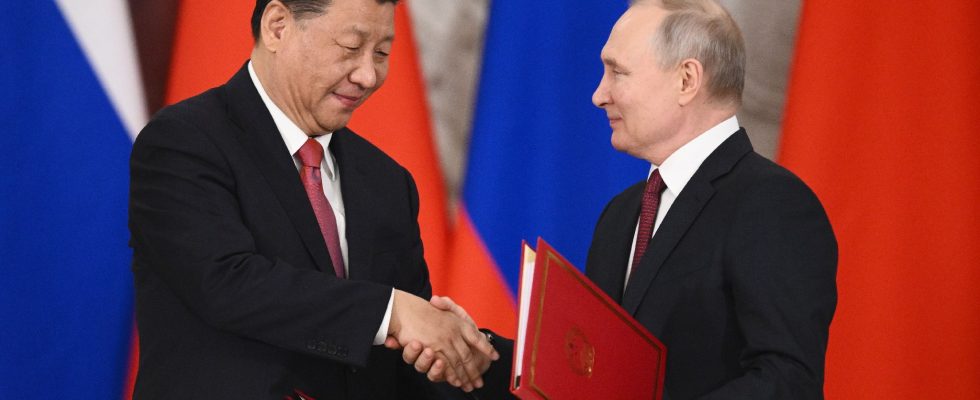No/ Beijing is not neutral in this conflict
By François Godement, historian and sinologist, Asia advisor at the Institut Montaigne
A mediator is at least a neutral actor who facilitates a negotiation between adversaries, and at best a negotiator who proposes compromises. China does not meet these conditions. It is biased on the causes of the war, accusing the United States and NATO of being responsible for it, and denies even the word “war”. It has little or no contact with Ukraine – despite repeated efforts by President Zelensky. Xi Jinping’s words are clear: “There are now changes unparalleled in a hundred years, and we are driving them,” he said, taking leave of Putin.
We may want to reassure ourselves: all this would be for the gallery, economic integration would take precedence over politics. It’s the opposite. And the prospect of an interminable war, the risks of escalation, make Europeans wish that a savior intervenes.
At best, China can calibrate its support for Russia: no, or too few, dual-purpose arms and component deliveries; no quick agreement on the second Siberian gas pipeline; a more specific warning about nuclear blackmail. That would already be a lot, and justifies France and Europe maintaining a dialogue with Beijing.
But beyond? Xi and Putin share the same diagnosis of fickle democracies. It would take a Russian military debacle for China to have an interest in ending the conflict, and preserving an ally dependent on it. Neither China nor we, however, would have the leverage to influence the Russian regime.
Only a rational calculation by a struggling Putin would give China an interesting role. Not as a mediator, but as a guarantor of an international solution. This role would still have to be fulfilled subsequently. And that the shadow of a possible conflict with Taiwan does not lead Xi to prefer an endless war in Europe. “Chaos is everywhere. The situation is excellent,” said Mao.
Yes / Xi Jinping is the only one who can be listened to by Putin
By Sylvie Bermann, former French Ambassador to Russia, the United Kingdom and China.
Who would have imagined Beijing orchestrating reconciliation between diehard Iranian and Saudi enemies? Moreover, on land, the preserve of Washington, where China, which generally shows little appetite for mediation, had never played a direct political role. Beijing, which could have been content with bilateral relations, has taken a diplomatic act which may constitute a precedent.
Is it possible to replicate it with Russia and Ukraine when the international community is pressing it? No doubt the situation is not ripe and everything in diplomacy is a question of timing. Ultimately, China has no interest in prolonging this war, which disrupts global economic circuits, associates it with a country discredited in the West while strengthening its declared enemy, the United States.
Beijing has drawn up a 12-point plan which is certainly not a peace plan. But it lays down milestones for the future and is the herald of principles which on paper go in the direction of Ukraine: respect for territorial integrity and sovereignty, non-use of nuclear weapons, prohibition attacks on civilians.
Xi Jinping is the only head of state likely to be listened to by Putin, certain that his counterpart will take Russia’s concerns into account. It is not a question of convincing him to stop the war immediately and unconditionally, but of obtaining concessions. To be in a position of mediator, it is certainly necessary to speak to both parties. Zelensky, disappointed not to have met Xi Jinping, did not reject this initiative explicitly, aware of the weight of China and its subsequent role in the reconstruction and the establishment of security guarantees for Ukraine.
Has the time for the “pax sinica” in Europe come? To parody the famous quote from the movie casablanca, maybe not today or tomorrow but one day soon.
